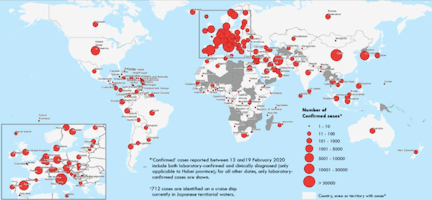Why Information Sharing and Accelerating Response Times Are Critical During a Crisis

In October 2019, the Center for Strategic and International Studies (CSIS) ran three simulated scenarios to map how nations, organizations and economies would respond in the face of a global crisis. The three scenarios were: a nation-state cyberattack and a disinformation campaign against the U.S.; a foreign military implementation of artificial intelligence; and a global pandemic of a highly transmissible coronavirus. The effort was aimed to inform policymakers of methods that could improve prevention and response, and highlight gaps or hindrances that could weaken our ability to respond to such a crisis.
Two of the major insights gathered from the scenario were that early and preventative actions are critical, and communication and cooperation across disparate parties and stakeholders are vital in improving response. While this might seem obvious, especially in hindsight, it highlights a parallel between distinctly different types of crises and the need to accelerate detection and the dissemination of critical information. It also brings to light questions around why information is often not shared and what can be done to make it easier or more secure.
Faster analysis and faster detection are critical to prevention and containment during a pandemic, and the sharing of data is key. This necessary data transfer can be facilitated by making healthcare data available between providers and using remote access while keeping certain best practices in mind to reduce risks related to data privacy.
Join our newsletter
Schedule a Demo with the Baffle team
Meet with Baffle team to ask questions and find out how Baffle can protect your sensitive data.
Easy
No application code modification required
Fast
Deploy in hours not weeks
Comprehensive
One solution for masking, tokenization, and encryption
Secure
AES cryptographic protection
Flexible
No impact to user experience

